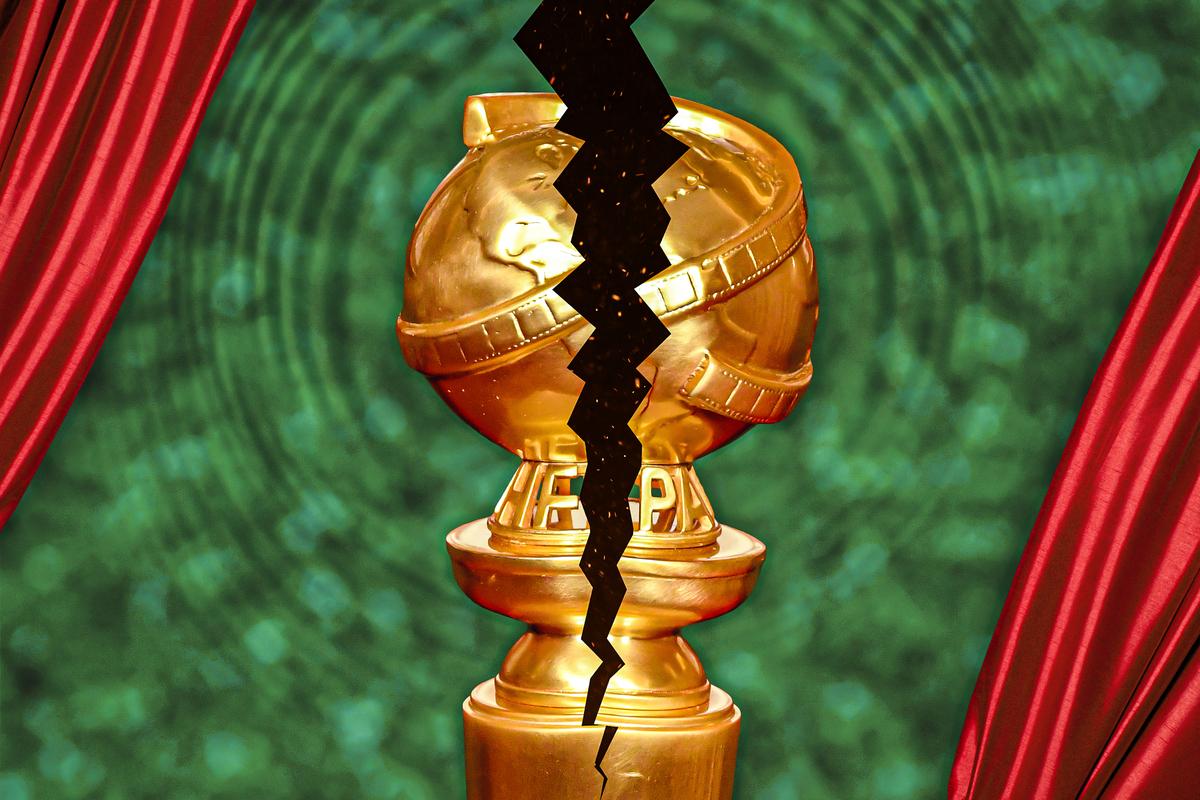
Stop me if you’ve heard this one before: The Golden Globes are mired in controversy. The only thing more on-brand for the Globes is its reputation for getting the biggest stars on the planet publicly sauced. But while the entertainment industry has papered over some glaring issues with the Hollywood Foreign Press Association for years, including a longstanding, transparently unethical tradition of being wined and dined (and effectively bribed) by studios, the organization’s latest shortcomings have become too big to ignore. Now, the Globes’ future is in serious—and arguably long-overdue—jeopardy.
Off the heels of a comprehensive Los Angeles Times investigation into the HFPA, which revealed there are no Black journalists within its membership along with other ethical lapses, NBC announced on Tuesday that it won’t air the 2022 Golden Globes. While NBC left the door open for the ceremony to be broadcast in 2023 provided that the HFPA is “committed to meaningful reform,” the rest of Hollywood is already distancing itself from the Globes’ sinking ship. Major studios, including Netflix, Amazon Studios, and WarnerMedia, have stated that they won’t work with the HFPA without the organization enacting reforms. A-listers have also chimed in, with Avengers costars Scarlett Johansson and Mark Ruffalo criticizing the HFPA in recent days—Johansson said that HFPA journalists’ behavior with her “bordered on sexual harassment.” Then there’s the news that broke on Tuesday that Tom Cruise, who has won three Globes for his performances in Born on the Fourth of July, Jerry Maguire, and Magnolia, returned his statuettes to the organization.
Even though Cruise’s gesture is akin to signing a Change.org petition and patting yourself on the back, the fact that one of Hollywood’s biggest movie stars has publicly distanced himself from the HFPA has perhaps delivered the Globes’ death blow. The HFPA, meanwhile, is scrambling to save itself by responding to NBC’s broadcasting decision with an outline of how the organization will look to enact reforms in the coming months. Beginning this month, the HFPA says it will be doing outreach for potential new members, including entertainment journalists writing for foreign outlets that aren’t based in Los Angeles. This process would (theoretically) conclude with the admission of new members—with an emphasis on diverse backgrounds—into the organization in August.
From the HFPA’s perspective, the best-case scenario would be that 2022 is an aberration and the Globes returns to NBC in 2023 with a more diverse membership. But two years is a long layoff, and if Hollywood has already distanced itself from the HFPA, what’s the incentive to bring the Globes back into the fold? NBC is probably the only party really rooting for the HFPA to get its shit together, and that’s simply on account of the network’s eight-year deal to broadcast the Globes that runs through 2026—a partnership that is costing NBC around $60 million per year. (The exorbitant cost was worth it when the Globes were a surprisingly reliable ratings gambit, but that wasn’t the case with this year’s ceremony, which hit an all-time low.) It’s not yet clear what kind of legal maneuverings would be required and how much NBC would owe the HFPA if the network stopped broadcasting the ceremony for the rest of the agreement. But NBC’s apparent preference to eat that cost next year rather than air the Globes is indicative of just how deep a hole the HFPA has dug for themselves.
Without NBC as a broadcasting partner, the HFPA loses not just its biggest source of income, but the visibility that has consistently made the Golden Globes the most-watched awards show outside of the Oscars and the Grammys. But if you take away the ceremony’s boozy intrigue, which was already absent this year because of the pandemic, what are we really losing with the Golden Globes? The HFPA’s shadowy cabal of journalists has zero overlap with Oscars voters, and while the Globes’ nominations can occasionally be entertaining in “WTF just happened?!” sort of way, it has historically come at the expense of more diverse and deserving nominees. Even when the 2021 Globes rewarded Minari, a critically acclaimed film about the Korean American experience set in Arkansas, its bizarre eligibility requirements meant the movie could win only Best Foreign Language Film. There is nothing more emblematic of the organization’s dubious priorities than this year’s Globes snubbing I May Destroy You, one of the best shows of 2020, for something like Emily in Paris, a series that flew HFPA members to Paris for a glitzy set tour. (Even Emily in Paris’s own writers thought I May Destroy You was done dirty—imagine how the rest of us feel!)
Now, without the Globes having a prominent spotlight for award season—for next year, at the very least—there’s room for other deserving ceremonies to command more attention. Why not clue in more prospective viewers to the Independent Spirit Awards, which celebrates lesser-known titles and in recent years has serenaded Laura Dern with The Gay Men’s Choir? If movie stars are the biggest draw of award season, wouldn’t the self-explanatory Screen Actors Guild Awards garner some interest? There is no single award show that can compete with the traditional glitz and glamour of the Oscars, but that doesn’t mean the industry should simply cede second place to an organization that had to expel one of its members last month for emailing an article that described Black Lives Matter as a “racist hate movement.”
The HFPA has long been granted legitimacy it never really earned—both as a faulty Oscars precursor and an organization with glaring ethical and diversity issues that haven’t exactly popped up overnight. If the latest controversy and a one-year NBC broadcasting hiatus is the Golden Globes’ death knell, the Hollywood Foreign Press Association has only themselves to blame. As for the rest of Hollywood: In retrospect, the industry should be ashamed for just how long it humored them.

